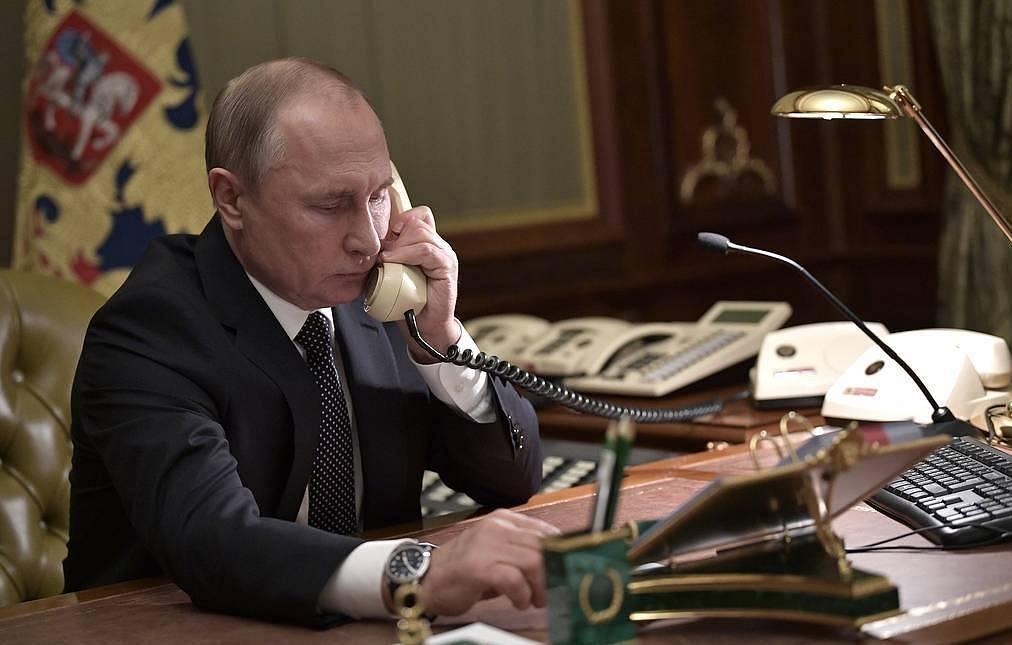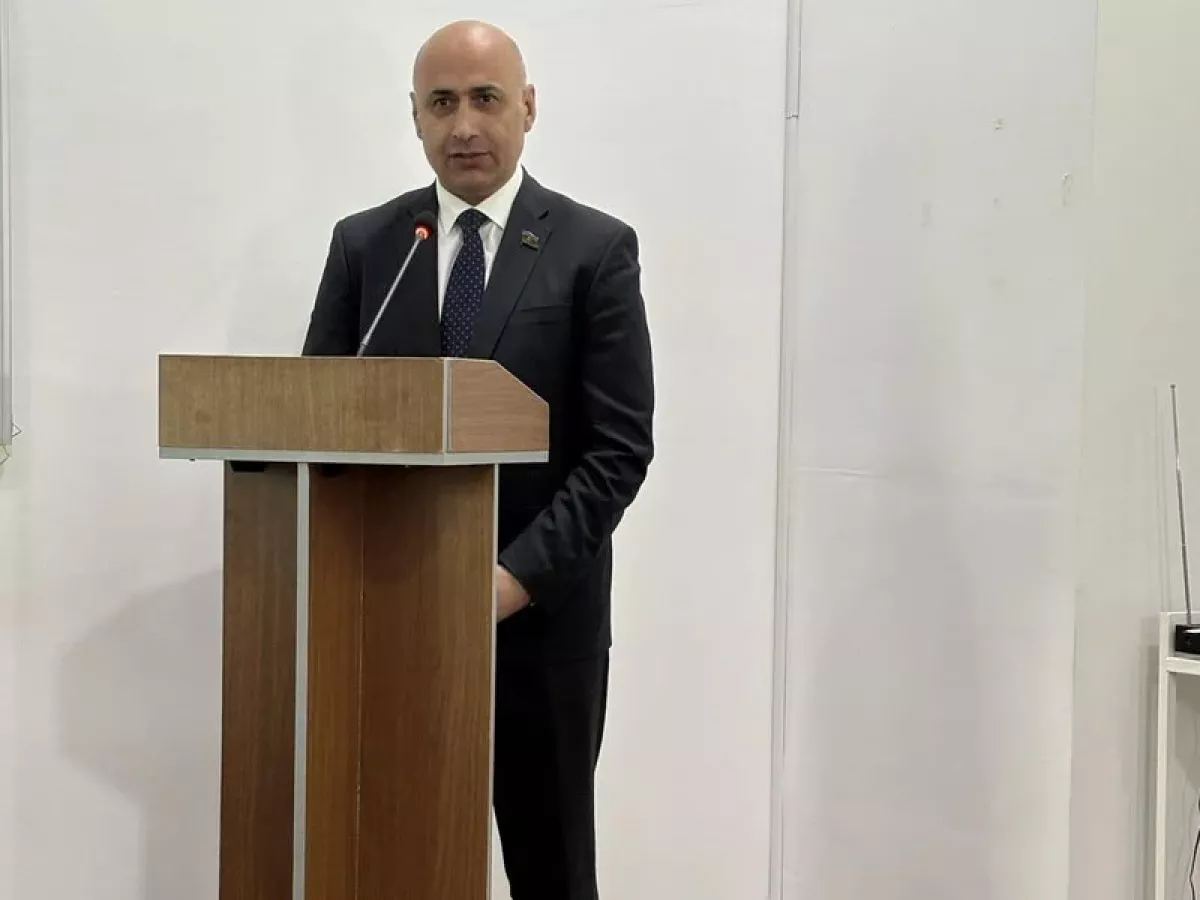Moscow's entry ban on Azerbaijani MP raises questions about bilateral cooperation Declaration and reality
Let's read carefully. No magnifying glass is needed for this, nor binoculars. And even a translator. Simply familiarise yourself with the following to keep it in mind. For what and for which purposes? That's not a question. One can confidently assume that after reading the following, everything will be clear without any need for further explanations. So...
February 22, 2022. The Declaration on Allied Interaction between the Republic of Azerbaijan and the Russian Federation includes a phrase about the historical traditions of friendship and good neighbourliness between the two countries, affirming the parties' recognition of the importance of rapprochement in political-economic, defence, cultural-humanitarian, educational, social, and other areas. At the same time, Moscow and Baku commit to refrain "from any actions that, in the opinion of one of the Parties, damage the strategic partnership and allied relations of the two states."
December 24, 2024. In his congratulations to President Ilham Aliyev of Azerbaijan on his birthday, Russian President Vladimir Putin emphasises how "it is difficult to overestimate your personal contribution to building and strengthening relations between our states, which amount to strategic partnership and alliance."

March 17, 2025. During a conversation with President Aliyev, the Chairwoman of the Federation Council of the Federal Assembly of the Russian Federation, Valentina Matviyenko, noted that significant progress had been made "in expanding bilateral ties in the political, economic, and humanitarian spheres, bringing them to a new qualitative level." She also pointed out the promising prospects for "the development of business contacts, mutual trade, and tourist exchanges."
In her speech at the opening ceremony of the Days of Russian Culture in Azerbaijan, Ms. Matviyenko specifically highlighted "the efforts of the leadership of the Republic of Azerbaijan, first and foremost President Ilham Aliyev, in supporting the Russian language and Russian culture." As she stated, "Russian-language media operate in Azerbaijan’s information space, many schools offer education in Russian, and branches of two leading Russian universities are functioning—with discussions underway about opening branches of three more universities, including MGIMO." According to her, this is an initiative of President Ilham Aliyev, and "we highly appreciate this attitude," expressing readiness to "continue providing the necessary support in this area of our cooperation."
March 21, 2025. In a congratulatory letter to Azerbaijani President Ilham Aliyev on the occasion of the Novruz holiday, Vladimir Putin, while emphasising the successful development of Russian-Azerbaijani relations "in the spirit of partnership and alliance," expressed confidence that "through our joint efforts, we will continue to actively strengthen mutually beneficial bilateral ties — for the benefit of our friendly nations and in the interest of enhancing security and stability in the South Caucasus and the Caspian region."
May 3, 2025. During a meeting with Ilham Aliyev, Patriarch Kirill of Moscow and All Russia referred to Azerbaijan as a “blessed” country—a place you always feel as if you're flying to “on wings.”
And then, almost mockingly in contrast to all of the above, on May 4, 2025, Azerbaijani MP Azer Badamov, who was part of a delegation invited by the Russian side and supported organisationally by the Executive Power of the Absheron District to travel to Russia’s Astrakhan region for events commemorating the birthday of National Leader Heydar Aliyev, was detained at a Moscow airport. The parliamentarian was denied boarding for the flight to Astrakhan. The reason: a Russian entry ban on Mr Badamov—without any explanation provided. As a result, the MP was forced to return to Baku.

Naturally, in the immediate aftermath of the scandalous incident, information began to circulate suggesting that the inclusion of Azer Badamov on Russia’s “blacklist” was linked to his responses to State Duma member Nikolai Valuyev, who earlier this year referred to members of the Azerbaijani diaspora in Moscow as a “mob.” The Milli Majlis (parliament) deputy’s replies to Valuyev’s anti-Azerbaijani insinuations conveyed a clear and unequivocal message—anyone in doubt can review Badamov’s statements made in early February 2025.
That raises another question: how do these facts align with the periodic anti-Azerbaijani rhetoric and actions taken by certain Russian parliamentarians? How can this be explained? Could it be that they pay no attention to the words spoken by the President of Russia or the Chair of the Federation Council? And if they are indeed paying attention—then what is their true objective?
A similar question can also be directed at those Russian institutions that lobby for such, to put it mildly, questionable decisions—ones clearly aimed at undermining the strengthening of Russian-Azerbaijani relations, as was the case in the incident involving the Azerbaijani MP.
It would appear that there are indeed forces within the Russian political establishment that stand in opposition to Azerbaijan. It is difficult to interpret the recurring developments on this front in any other way—particularly when viewed in the context of biased anti-Azerbaijani insinuations and provocative actions by certain Russian politicians. These actions serve only to erode the mutual understanding between Russia and Azerbaijan.








